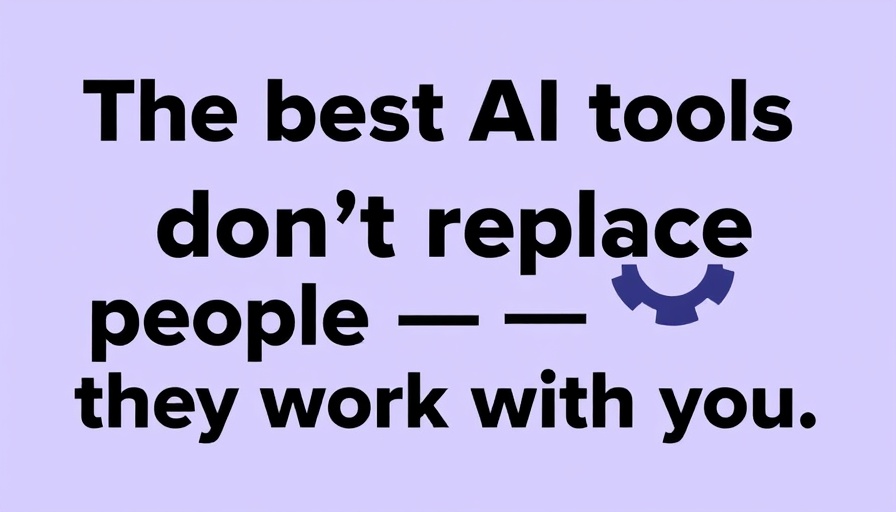
AI Tools: Partners in Progress, Not Competitors
As artificial intelligence continues to permeate various sectors of society, a significant narrative has emerged: AI is not a threat to human jobs, but a tool that enhances collaboration and productivity. Though concerns surrounding AI job automation and its cultural influence have escalated, a profound understanding of the partnership between humans and AI can illuminate its potential for social good.
Historical Context: Understanding AI's Evolution
The evolution of AI tools dates back several decades, but it’s only in recent years that they’ve gained traction in practical applications. From enhancing productivity in education to providing insights in policy decision-making, AI has proven its ability to support human capabilities rather than supplant them. For instance, educational institutions have leveraged AI for personalized learning, ensuring that students receive tailored resources that maximize their potential.
AI’s Ethical Implications: Technological Power and Responsibility
The integration of AI tools into society raises crucial ethical considerations. As sociologists and policymakers delve into the societal changes brought about by AI, the discourse often centers on privacy, equity, and accountability. The push for AI ethics in society is imperative to ensure that advancements are not just innovative but also socially responsible. Policymakers must implement frameworks that safeguard against inequality and bias, avert potential job displacement, and promote an equitable distribution of AI’s benefits.
Practical Insights for Bridging AI and Human Workforce
One practical approach to harnessing AI as a partner in the workplace involves emphasizing reskilling and upskilling for current employees. As AI and the workforce become increasingly intertwined, training programs that incorporate AI literacy can empower individuals to work alongside AI tools effectively. This shared aiming for progress not only enhances job performance but also fosters a culture of innovation.
AI and Social Change: A Commitment to Betterment
AI holds transformative potential in addressing various societal issues, from health disparities to enhanced governance. The capacity for AI to analyze large data sets can provide actionable insights into public health crises, housing inequalities, and educational access. For example, AI can be programmed to identify patterns in social data, helping organizations tailor interventions to specific community needs. As such, commitment to utilizing AI for social good reinforces our collective responsibility towards positive societal transformations.
The integration of artificial intelligence into various sectors emphasizes the potential of technology to act not as a competitor, but as an ally to individuals working towards societal improvements. Embracing this perspective, with its various ethical and practical dimensions, positions society to harness the rich culture of technological collaboration.
 Add Row
Add Row  Add
Add 




 Add Row
Add Row  Add
Add 



Write A Comment